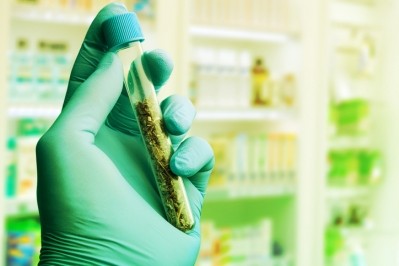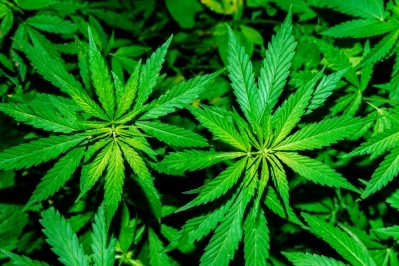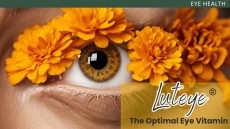Guest article
CBD, climate crisis, sustainability: ABC takes a look at 2019 and beyond

Although sales statistics for herbal dietary supplements for 2019 are not yet available, the year 2018 demonstrated robust sales growth for the dietary supplement industry in the United States, with increases of 11.9%, 7.6, and 6.9% in direct sales, mass market, and the natural channel, respectively, according to HerbalGram’s annual Herb Market Report.
CBD comes to the fore
The most impressive sales increase was seen in the natural channel for CBD, one of the psychoactive but non-intoxicating compounds in cannabis. As such it is difficult to look back at the year 2019 in the dietary supplement industry without mentioning the increased prominence of hemp extract, CBD, and/or cannabinoids. There have not been scientific meetings or industry trade events where the hemp plant and products derived from it, as well as current regulations, and/or lack thereof, were not discussed.
CBD sales will presumably continue to increase in 2020, subject to significant concerns about FDA regulatory policy. Additionally, some herb companies report a possible ‘cannabilization’ of the sales of other popular, more-established herbs by the growing CBD phenomenon. Consumers’ use of CBD as a projected virtual ‘cure-all’ appears to manifest in their using CBD preparations instead of some traditionally used herbs (instead of perhaps with the herbs). This is possibly a result of excessive marketing claims by some CBD promoters. How this will continue in 2020 is worth watching.
Climate crisis
Looking beyond cannabis, environmental aspects such as sustainability and the climate crisis are becoming increasingly apparent as a focus of many dietary supplement industry stakeholders. Strong educational efforts in this area have been initiated by ABC, among others, with its publication of a special HerbalGram issue about the impact of the climate crisis on the future availability of medicinal and aromatic plants (MAPs) and ABC’s Sustainable Herbs Program (SHP) partnership.
SHP is an initiative to foster transparency, traceability, and environmental consciousness in growing, manufacturing, packaging, and laboratory testing of botanical dietary supplements. A combination of habitat loss, climate change, and increased demand has put great pressure on many MAPs that are predominantly collected in the wild, such as rhodiola, boswellia, and guggul. Good practices for sustainable collection, agriculture, and manufacturing of botanical dietary ingredients are some of the topics discussed in a growing variety of videos on the SHP website.
New in 2019 was documentary filming of the botanical trade in the Appalachian forest to produce a series of short documentaries to highlight sustainability challenges and solutions with Appalachian forest botanicals. Taking the necessary steps for companies to become more sustainable makes not only economic sense but is an imperative if the botanical dietary supplement industry aims to continue its healthy growth.
Adulteration in the headlines
The issue of adulteration has also made some headlines in 2019. One of the more prominent cases is the sale of products labeled to contain a combination of turmeric and pepper extracts which have been implicated in over 20 hepatitis cases in Italy in May and June of 2019. While investigations did not find a causative agent for the liver injury, some of these products were found to contain synthetic curcumin and piperine instead of the natural plant extracts.
The ABC-AHP-NCNPR Botanical Adulterants Prevention Program (BAPP), which recently released its 55th peer-reviewed publication, continues its efforts to educate the global botanical industry about botanical ingredient adulteration. A key component of BAPP is the Best Practices SOP for the Disposal or Destruction of Irreparably Defective Materials, i.e., materials that cannot be lawfully remediated by the supplier, the buyer, or any third party, for any use. The revised SOP and related contract language, also known as “burn it, don’t return it,” is scheduled to be sent out for a second round of public comment in early 2020 prior to its being finalized for adoption by industry stakeholders. However, some leading companies, e.g., NOW and Pharmavite, have already begun to incorporate the currently-revised contract language and SOP into their existing SOPs.
Botanical Safey Consortium
One of the primary aspects of consumer access to dietary supplement is the establishment of a dietary ingredients’ safety. A recent initiative in this area is the Botanical Safety Consortium (BSC), a public-private partnership among FDA, nonprofits, trade organizations, academia, and industry members with the goal to enhance the knowledge on botanical ingredient safety, to develop new in vitro and in silico tools (as alternatives to animal testing) to make such safety testing methods more predictable for effects in humans, and to provide recommendations on best practices for in vitro testing of botanicals. With the organizational structure of BSC nearing completion, this initiative is bound to start working on method development in 2020, which should lead to the availability of practical in vitro and/or in silico botanical ingredient safety evaluation methods in the near future. ABC is represented on the BSC steering committee.
New ingredient discovery
The increased interest in non-CBD cannabinoids from the hemp plant has been particularly obvious at the major trade shows in the U.S., and it is expected that compounds such as cannabinol, cannabigerol, cannabidivarin, and others will become more prominent in the cannabis space. Since research on many of these cannabinoids is sparse, but the therapeutic potential quite impressive, many of these compounds are expected to be pursued as lead compounds for drug development in the pharmaceutical industry, possibly precluding them for use as a dietary ingredient, i.e., depending on how regulatory issues evolve. At the same time, more activity in the area of the safety and efficacy of low-to-moderate doses of CBD and related cannabinoids can be anticipated.
Another field of rapidly growing interest is legitimate human clinical research in psychedelics (which are not here being proposed as dietary supplements), with major universities getting into the area with increased funding. Primary research areas include post-traumatic stress disorder (PTSD) and depression, among other indications. Among the plant- or mushroom-derived compounds are psylocybin (from several species of Psylocybe mushrooms), and there’s growing interest in ibogaine (from the African plant Tabernanthe iboga) for treatment of opiate addiction. While these investigations may not lead to new dietary ingredients, it is a research field worthy to keep an eye on.
Sustainability, transparency to continue as hot topics in 2020
Sustainable practices, transparency, and the move to more environmentally-friendly business models in the dietary supplement industry will continue in 2020 as consumers’ views are expected to become even more favorable towards value-added products. In this area, SHP will expand its focus by looking at ways to reduce raw material, production, and laboratory waste, decreasing energy and water use, and implementation of green analytical chemistry principles. Also scheduled to be released in early 2020 is the SHP Sustainability & Regenerative Practices Toolkit, a collection of best practices for botanical dietary supplement ingredient suppliers and manufacturers relating to developing sustainable and regenerative value networks.
The assurance of identity and quality will stay one of the main deliverables of the responsible members of the botanical dietary supplement industry. This is particularly true for ingredients that experience rapid growth, such as the hemp extract and CBD markets. BAPP plans to make substantial contributions in this area. In its 10th year, a broad look at the impact of the Program will take place during the annual International Conference on the Science of Botanicals (ICSB), which will take place between March 30th and April 2nd, 2020. Other initiatives in preventing botanical ingredient adulteration are the development of a BAPP publication on the sale of crude botanical ingredients, and herbal extracts labeled to be genuine, where some of the putative actives have been removed (spent material), and the excessive dilution of extracts with undeclared excipients.
















